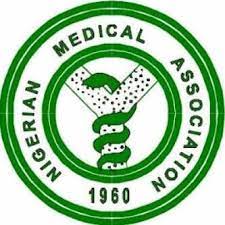The Nigerian Medical Association (NMA) has called for a stronger and integrated referral healthcare system linking primary, secondary, and tertiary facilities to ensure effective, patient-centred outcomes.
NMA President, Prof. Bala Audu, made the call on Tuesday at the opening ceremony of the 2025 Physicians’ Week of the association’s Anambra branch in Nnewi.
Audu, represented by the Anambra NMA Chairman, Dr. Princeton Okam, said there was an urgent need to strengthen every link in the healthcare value chain through well-crafted and evidence-based policies.
The theme of the week was “Healthcare as a Value Chain: Building Efficiency from Policy to Patient.”
He noted that Nigeria’s healthcare system was overstretched and that the value chain could not function effectively where doctors and other health professionals worked under poor infrastructure, delayed remuneration, and unsafe conditions.
“There is an urgent need for a coordinated, accountable, and effective health system where every component—from policy formulation to patient care—is optimized to deliver real value to Nigerians,” he said.
Audu identified policy incoherence, poor financing mechanisms, unsustainable workforce policies, and weak system integration as major factors undermining healthcare delivery in the country.
He stated that Nigeria’s health expenditure stood at 4.08 per cent of GDP, which is below the global average, with a healthy life expectancy of about 55 years and a health worker density of 1.83 per 1,000 population.
“The NMA calls for comprehensive policy reforms driven by implementation and measurable accountability, as well as re-engineered health financing focused on preventive and primary care,” he said.
“The consequence of the current situation is a health system that is overstretched, underfunded, and underperforming. Nigeria’s maternal mortality ratio remains above 1,000 deaths per 100,000 live births, and up to 80 per cent of deaths in rural communities are linked to weaknesses in the primary healthcare system.”
He urged the government to adopt implementation-ready policies that are inclusive, context-sensitive, and aligned with realities across all levels of care.
“Our financing model must evolve beyond fragmented, reactive spending. Every naira allocated must add measurable value to patient outcomes,” Audu said.
He also called for urgent action to address the exodus of skilled professionals through deliberate incentives and supportive policies, stressing that without a strong workforce, the health system would continue to collapse.
According to him, the primary health centres must be equipped with basic tools, essential medicines, and functional referral systems, linked with secondary and tertiary healthcare facilities.
“The NMA envisions a Nigeria where every pregnant woman in a rural community has timely access to skilled care, essential drugs are available, referrals are seamless, and doctors are empowered to save lives rather than struggle against systemic failure,” he said.
In his welcome address, Dr. Okam said the 2025 Anambra State Physicians’ Week and Scientific Conference featured several activities aimed at reminding doctors of their Hippocratic Oath and their responsibilities as healthcare leaders.
He said the week-long programme included lectures, visits to sick and aged members, orphanage homes, schools for career and health talks, indoor and outdoor games, medical outreaches, awards, luncheons, and a thanksgiving service.
“It is my earnest desire that this year’s Physicians’ Week will impact us positively as we strive to live fulfilled lives that leave indelible marks in the sands of time,” Okam added.


